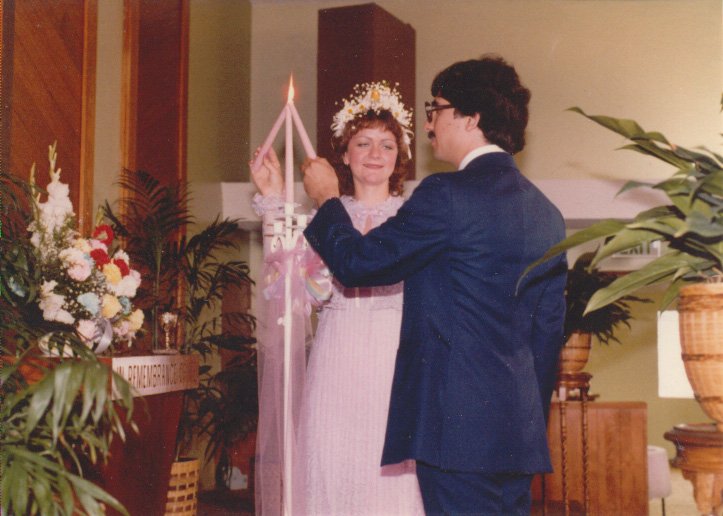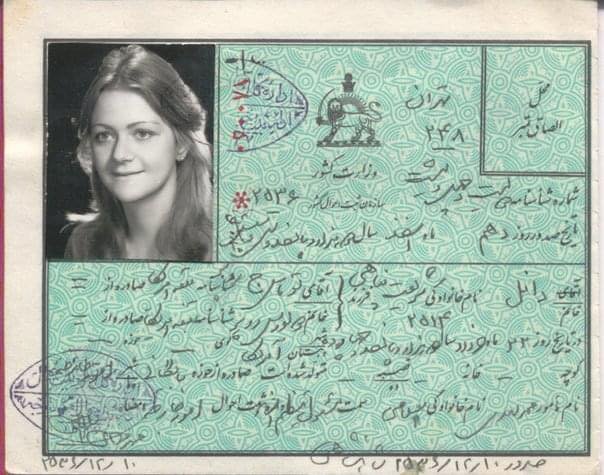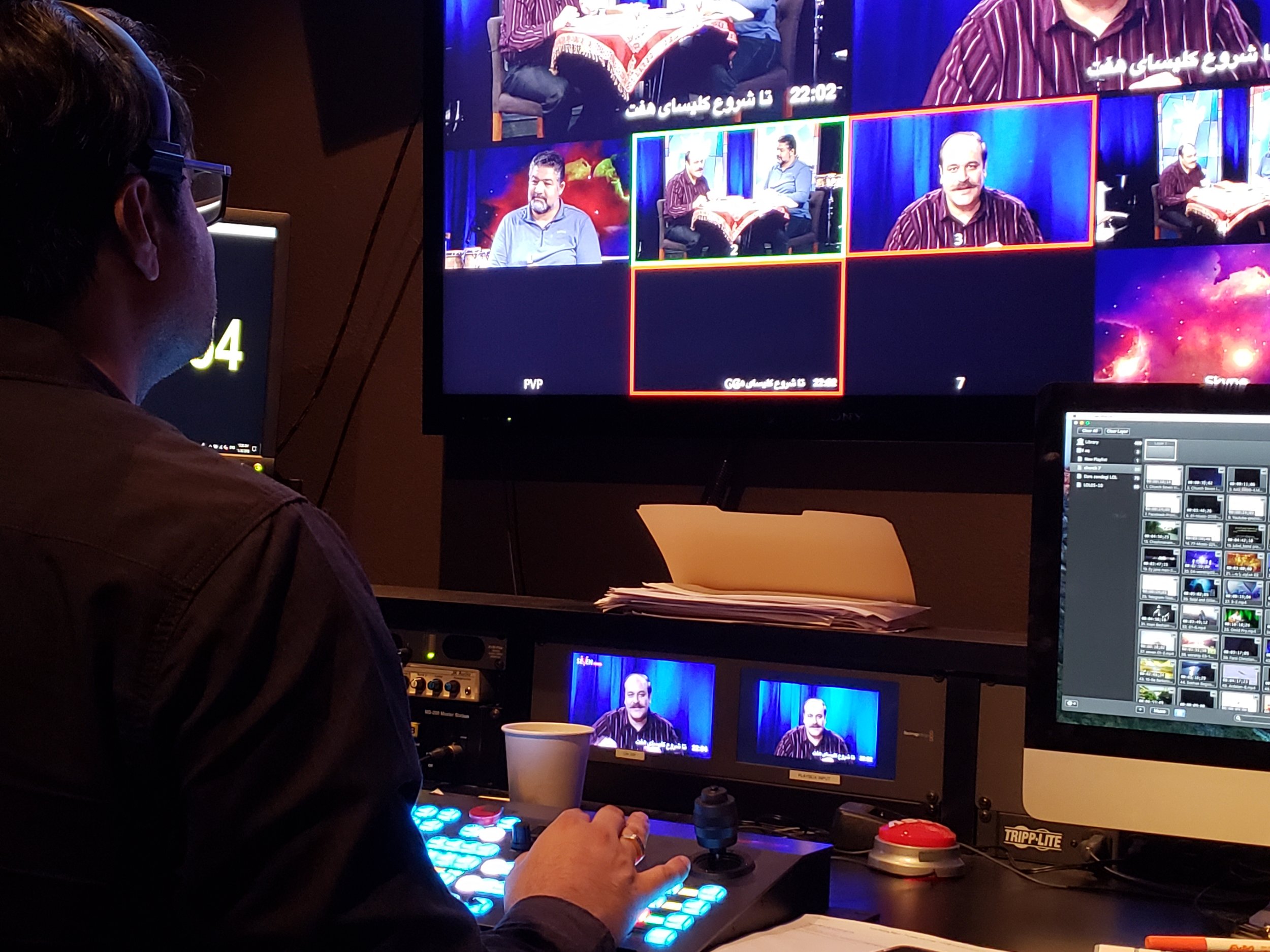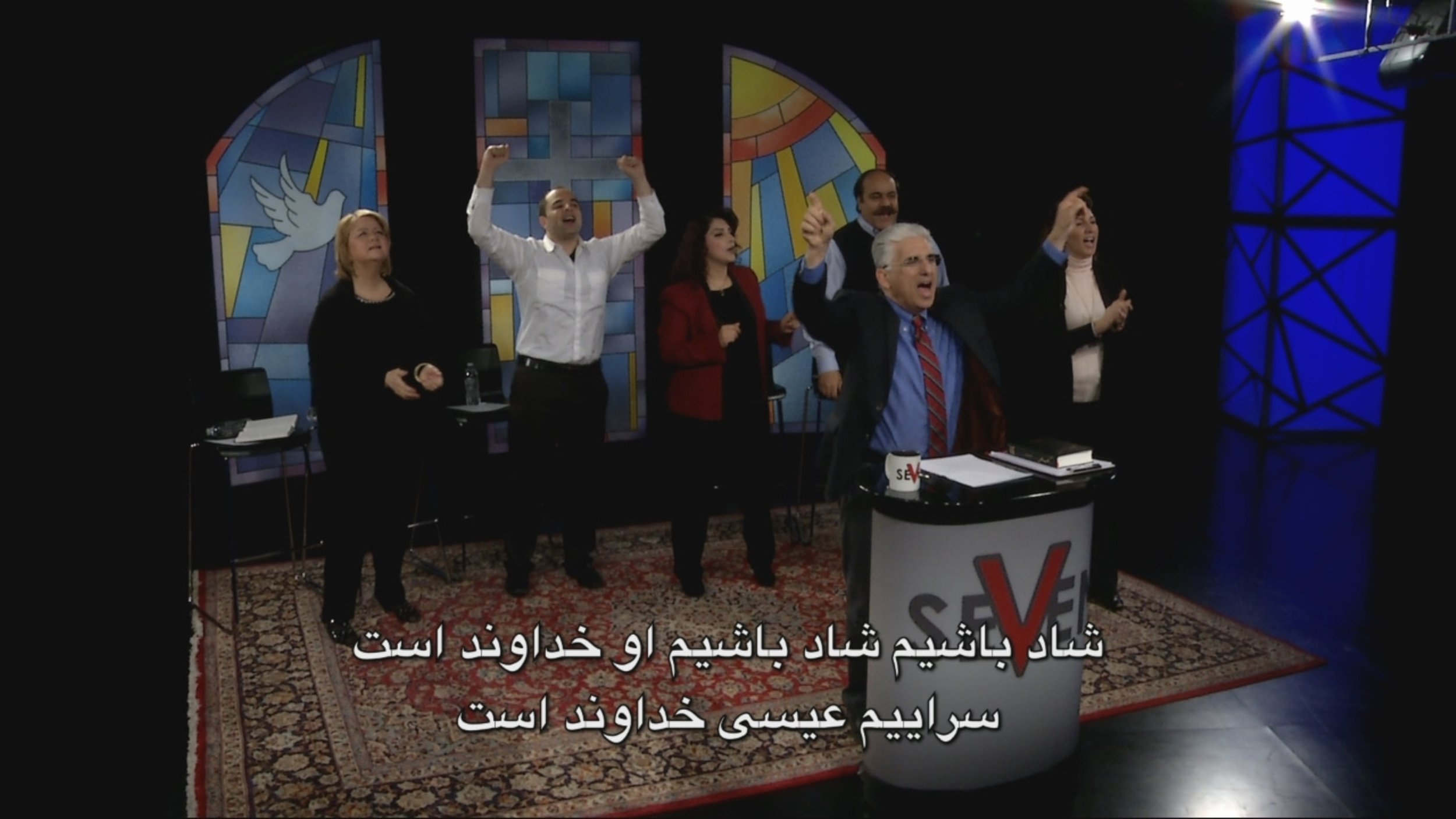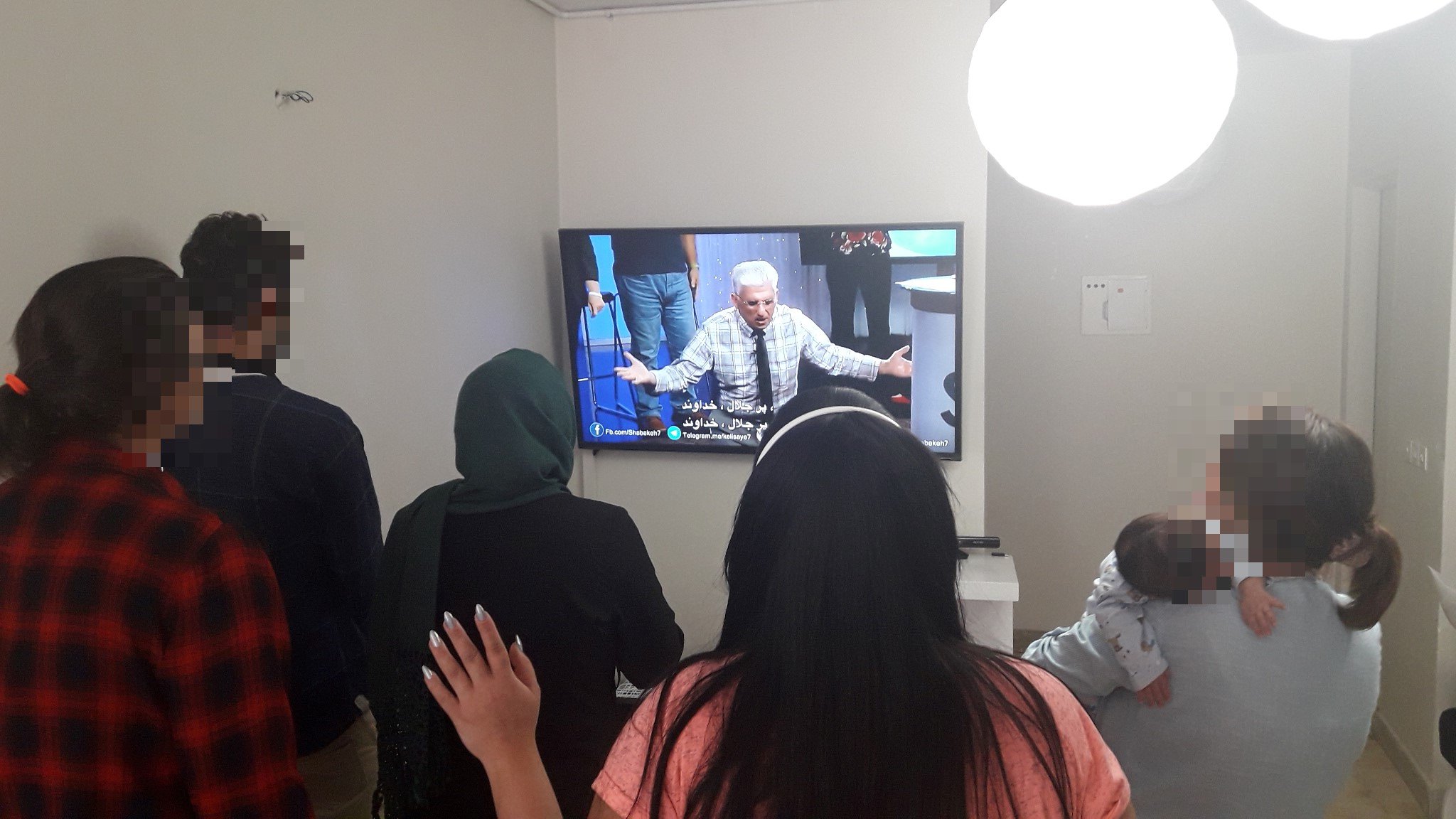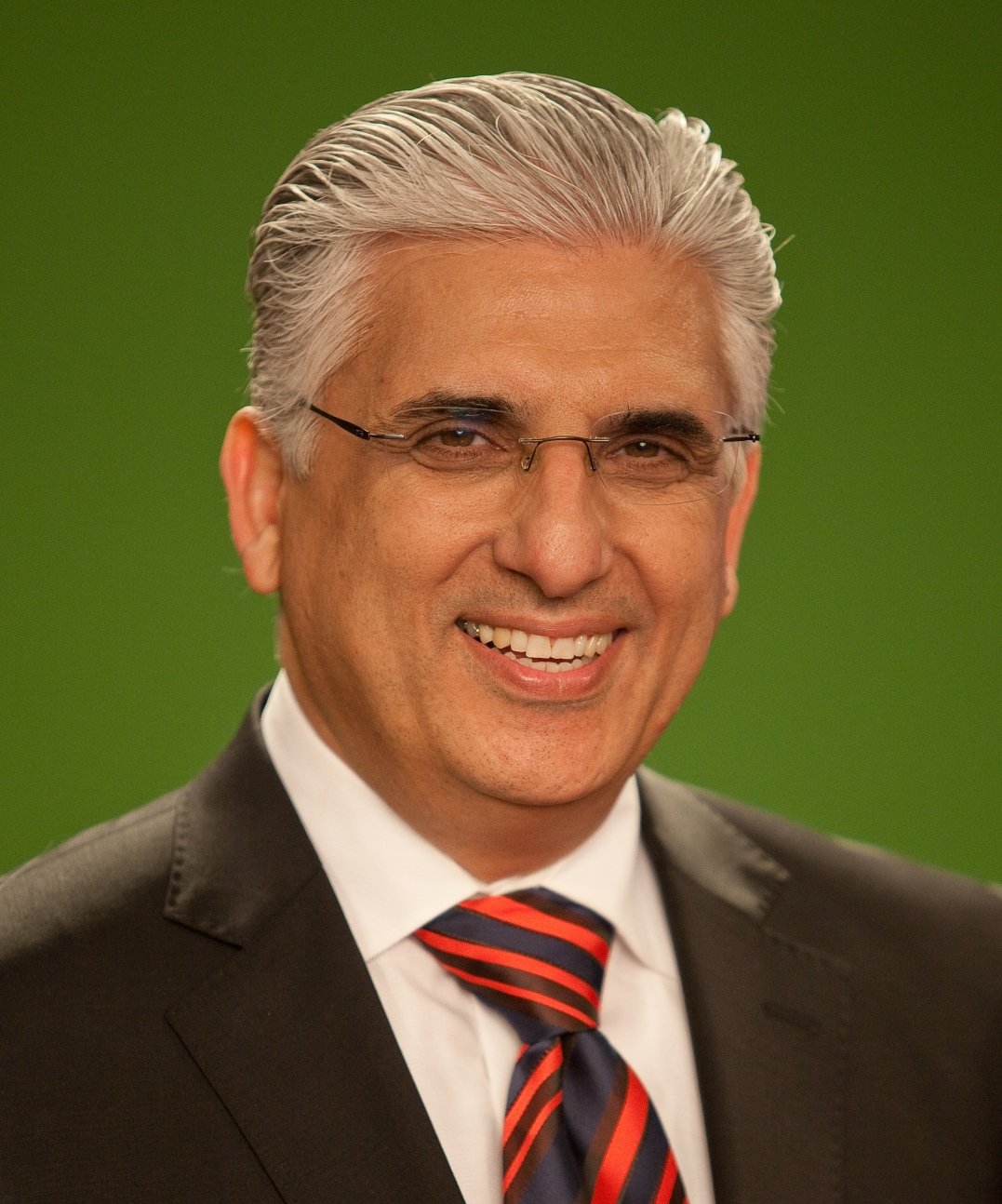#44 From “Death to America!” to Awakening in Iran - Hormoz Shariat
Hormoz Shariat, once chanted "Death to America!" in the streets of Tehran, Iran, but after doubts crept into his heart about Islam he was forced to reckon with what he truly believed about God.
His conclusions and ensuing actions, would eventually lead the Iranian government to branding him as an enemy of the state.
The following is a summary of the podcast interview above with Hormoz Shariat. Many more details are included in the original podcast episode and we encourage you to listen.
Written by Jace Bower
Big Questions
There comes a time in each person’s life when they start asking the big questions about God and faith. And while they may have grown up around a set of answers, they approach these questions with a fresh skepticism and curiosity.
For Hormoz Shariat, that time came when he was a teenager living in Iran. Hormoz had grown up in a family that was deeply involved in the religion of Islam. In fact, Hormoz’s family had been caretakers of their local mosque for generations before the maintenance passed to the government.
While Hormoz had grown up surrounded by Islam, he was only a nominal Muslim, in a similar way that many people growing up in Christian families hold a nominal faith until they make it their own.
When Hormoz was a teenager, he began asking the big questions about Allah in earnest. He wanted to see his faith impact his daily life. But he was disappointed. It didn’t seem that the God of Islam had any impact on his daily life beyond imposing a set of rules to abide by.
Hormoz’s teenage searching turned up nothing that interested or impacted him, so he set his sights on other things.
“Death to America!”
Hormoz had career aspirations to be a research scientist in artificial intelligence. He worked hard and was able to get into a competitive university in Iran where he earned his bachelor’s degree. His plan was then to travel to the United States to earn his PhD.
But those plans would be complicated by the political disruption that Iran was experiencing at the time. The Iranian ruler, the Shah, was backed by the United States but lost favor with his own people. In 1979, students in Tehran, the capital of Iran, were protesting the Shah and demanding new leadership.
In the midst of these protests, Hormoz found himself in the streets of Tehran chanting “Death to America!” But secretly, in his heart, he wanted to travel to the United States and continue his education.
While big changes were happening in Iran, Hormoz’s personal life had also undergone change. He had met an American woman living in Tehran and had married her after she converted to Islam.
Studying the Quran
Soon after getting married and participating in street protests in Tehran, Hormoz moved to the United States to continue studying to be a research scientist.
He also continued studying his faith and the questions that remained from his teenage years. He began to apply his research skills to these questions. He studied the Quran daily to find something life-changing.
But once again, his study came up empty. He couldn’t find anything in the Quran that impacted him like he hoped for. Nothing in the Quran could change his daily life in a profound way.
Despite coming up short in his quest for deeper fulfillment in the Quran, Hormoz could not give up and embrace the American dream of material prosperity as the ultimate fulfillment in life. He reasoned that he had to do sincere and complete research on the question of the existence of God. That meant reading the Bible.
Hormoz figured he could read the Bible in three days. It wouldn’t be hard, he reasoned, because it would mostly be saying the same thing as the Quran. Islam, after all, was the final and complete religion, wasn’t it?
More Questions
Hormoz started reading in Genesis but then skipped to Matthew. And there, his quick run-through of the Bible bogged down into a slow and confusing trek.
He couldn’t understand the character of Jesus. Was he a prophet like Mohammed? If so, he talked far too much about himself! Why would this Jesus tell his disciples to love their enemies? Hormoz was thoroughly confused by the Jesus of the Bible.
Meanwhile, Hormoz’s marriage was struggling. He and his wife avoided each other, even when at home. While Hormoz spent long hours studying, his wife worked late into the night at her office.
His wife’s pain was evident to a janitor who worked nights at her office. He was from Guatemala and couldn’t console her with English words due to not knowing the language. But he would bring her coffee in an attempt to comfort her. One night he came equipped with enough English to tell her that Jesus loved her and to invite her to his church, which had English and Spanish services.
A Challenging Faith
When Hormoz confessed his confusion about the Bible to his wife, she suggested that they attend the church her janitor had invited her to.
At the church service, the Gospel was preached in a simple and clear way that touched Hormoz’s heart. He was overcome by the simplicity of the faith and was convicted of overcomplicating it. His wife accepted Christ during their first Sunday. Two weeks later, Hormoz placed his faith in Jesus as well.
Over the years, Hormoz’s faith would be tested, as everyone’s is at times. But two things in particular happened soon after his conversion that would challenge his newfound faith.
The first was Hormoz’s marriage. It continued to struggle. Hormoz and his wife sought a divorce, but their pastor counseled them not to. He quoted from Malachi 2:16 where God declares that He “hates divorce”. Coming from a Muslim background where divorce was common and easy to procure, this surprised and challenged Hormoz. The couple decided to follow God’s will despite the difficulty and over time, their marriage was transformed.
The second event that challenged Hormoz’s faith was something far more tragic. Back in Iran, Hormoz’s younger brother had been arrested at the age of 16 and sent to prison for a minor political infraction. His mother was continually reassured of her son’s safety and eventual release but one day was summoned to the prison to collect his body. Hormoz’s brother had been executed by firing squad.
This event caused Hormoz to wrestle with anger and a desire for revenge against the men who had killed his brother. But his new faith forbade him from violent revenge, hatred, and vicious anger against these men. Hormoz didn’t know what to do.
A Surprise Calling
That’s when God spoke to Hormoz and gave him a calling. Hormoz felt the Lord telling him not to hate these men but to have compassion on them. They were not his enemy but were instead being used by the Enemy. They were powerless in Satan’s control.
Hormoz felt God calling him to evangelize and share the Gospel with these people and others like them who had not heard the good news of Jesus. He began to preach and teach other American immigrants in his native tongue of Farsi, sharing the Gospel with other Muslims like him.
After many failed attempts to organize a church of converts, Hormoz eventually established a church in San Jose, California, for the Farsi-speaking population. At first, Hormoz continued working his job as a researcher at an artificial intelligence lab while another man pastored the church. But one day God convicted him to quit his lucrative career and become a full-time pastor and evangelist.
Broadcasting Into Iran
And so began Hormoz’s ministry to teach and preach the Gospel to the people of Iran. As satellite technology was developed, Hormoz used that to great effect to reach the people of Iran for the last 20 years.
The Iranian government has remained incredibly antagonistic to the message of the Gospel and frequently and severely punishes those who convert from Islam to Christianity, sometimes to the point of death. But while the government can track people’s internet browsing, they can’t track what people watch on television, if received via satellite dish.
For this reason, Hormoz’s ministry, Iran Alive Ministries, broadcasts the Gospel message through satellite television into Iranian homes. They put a number on the screen so that people can call in with questions. Every day, they received dozens of calls from Iranian viewers asking questions and giving their life to Christ.
Between May 2020 and October 2020 alone, an estimated 10,000 Iranians became believers through the broadcasts of Iran Alive Ministries and the bold evangelism of the Iranian Christians who work with Hormoz.
Perfect Love Casts Out Fear
Hormoz’s story of turning from nominal Islam to passionate Christianity is powerful. The great revival and growth of the church in Iran is a sign of God working in one of the places on earth most ruled by Islam. Recent data indicates that the church in Iran is the fastest growing group of Christians in the entire world. The Lord is working powerfully in the hearts of people in Iran, and Hormoz’s ministry has been granted the privilege to play a key role in that work.
Hormoz points to simple but sincere Christian love as the key element of Iran’s great awakening. In a culture dominated by Islamic fear, the love of Christians takes people by surprise and draws them to faith in Jesus. That’s why Hormoz is quick to advise anyone witnessing to a Muslim neighbor or friend to not neglect the great power of loving them in real and tangible ways.
Starting with the simple love of a janitor, Hormoz’s life has been shaped by God’s love and now he shares that love with thousands worldwide.
—
Jace Bower is a writer with a passion for justice and biblical principles. He writes at jacebower.com.
Win an Autographed Copy of “Iran’s Great Awakening” by Hormoz Shariat
Note: We will choose 3 winners. Winners must live in the United States.
Note: We will choose 3 winners. Winners must live in the United States.
Resources from Hormoz Shariat
Iran Alive Ministries (the U.S. website for Hormoz’s ministry)
Shabekah 7 (the Persian website for Hormoz’s ministry)
Iran’s Great Awakening (Hormoz’s book) on Amazon
Other Articles
Meet the World’s Fastest Growing Evangelical Movement (The Gospel Coalition)
Iran’s secular shift: new survey reveals huge changes in religious beliefs (study about Iran’s shifting religious beliefs)
Photos from Hormoz
